
The Map Feature
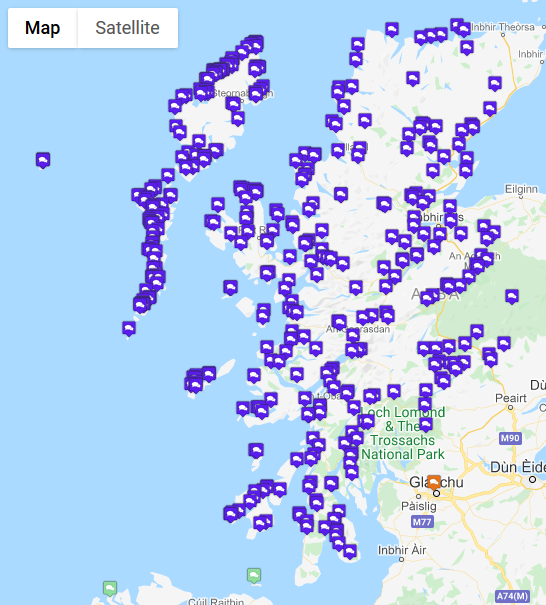
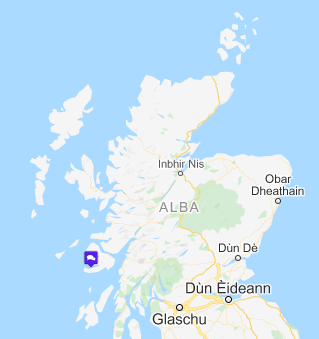
| da-rìreabh | dha-rìreabh |
ga-rìreabh | a-rìreabh |
rìreabh |
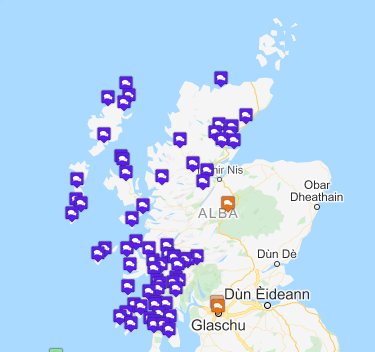 |
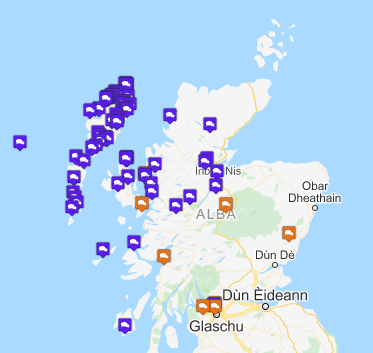 |
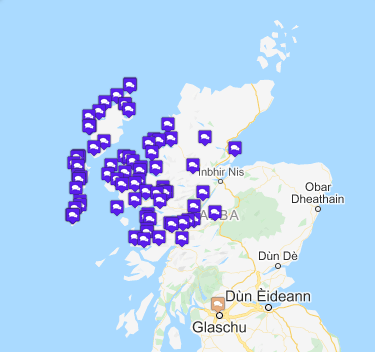 |
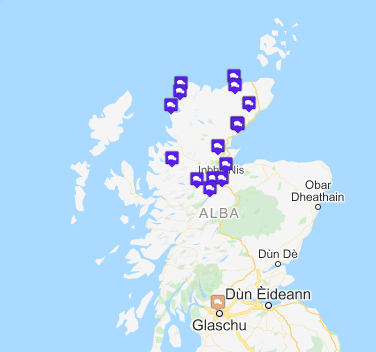 |
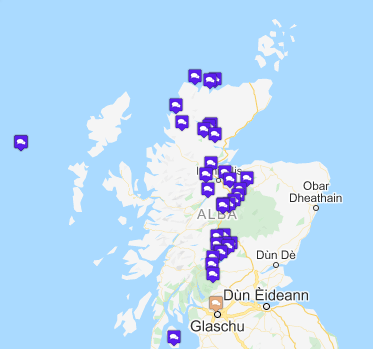 |
| Native
Speaker, active use |
|
| Native
Speaker, passive knowledge |
|
| Native Speaker, word not known at all | |
| Fluent
Learner, active use |
|
| Fluent
Learner, passive knowledge |
|
| Fluent Learner, word not known at all |
|
| Usage in Irish/Manx |
|
| Gaelic word borrowed into Scots |
|
| Occurs as Gaelic place name element |

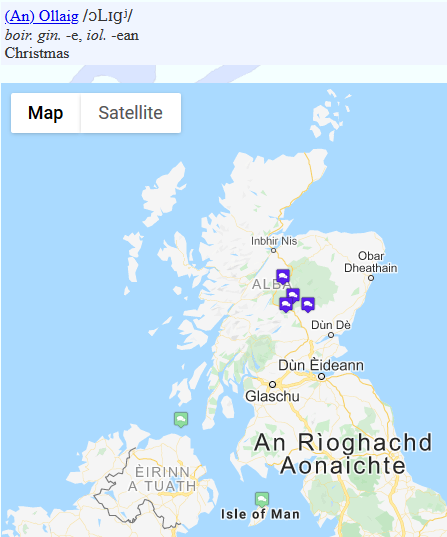
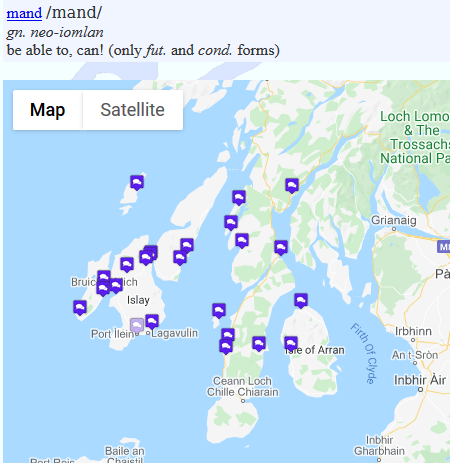
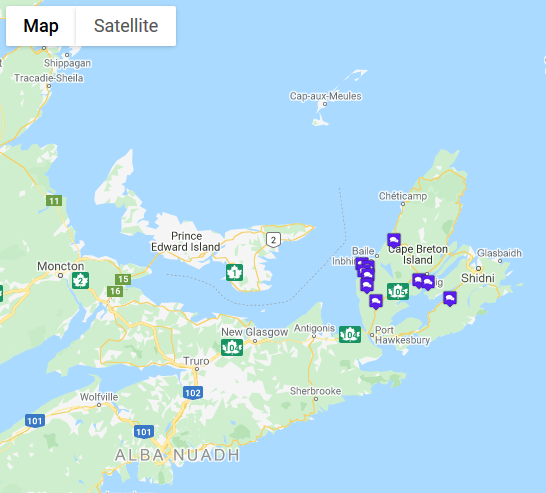
| Back to dictionary |
General help
pages |
Forum |
About the Faclair Beag |